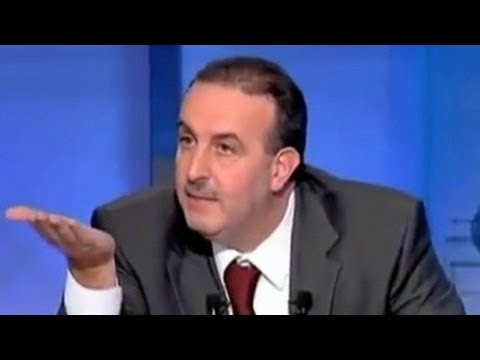http://jcpa.org/multiplying-efforts-to-undermine-the-unique-status-of-mecca-in-islam/
The status of the Islamic holy places or, more precisely, the undermining of their status, has become part of the struggle over the nature of the Middle East. The Sunnis destroy sites that are holy to the Shiites, and the Shiites, along with the Alawite regime in Syria, destroy sites in Syria that are holy to the Sunnis. The Al-Aqsa Mosque may also be included in this struggle – and not to its benefit.
When the revolt against Assad erupted in Syria, Saudi Arabia refused to recognize the Syrian government’s authority regarding the Hajj (pilgrimage) to Mecca and transferred that authority to the Free Syrian Army. This aroused fury in Damascus, and Assad’s Syria took retributive measures that indeed brought the conflict between Syria and the Hijaz (a region in western Saudi Arabia) back to the Ummayad period (661-750), during which the Hijaz did not recognize the Ummayads and the Syrian army of the Ummayads saw fit to assault with catapults the Kaaba, the holiest structure in Islam which is situated in the courtyard of the Great Mosque in Mecca.1
All this was mentioned explicitly in an interview with the TV station of the Lebanese Christian leader Michel Aoun, who is associated with Hizbullah. On August 14, 2013, Fayez Shaker, head of the Syrian Ba’ath Party branch in Lebanon and a former Lebanese minister, said that if Mount Qasioun in Damascus were to be fired upon, Syria would blow up the Kaaba.2
The relevance of Jerusalem in this context emerged clearly with the publication of emails from Assad’s office that were intercepted by anonymous hackers.3 At the time, in December 2011, Assad was preparing for a major speech. Meanwhile, the Muslim Brotherhood faction that is loyal to Assad (yes, there is such a thing) was preparing a campaign for the “liberation of Al-Aqsa” under Assad’s aegis.4 One of the themes discussed for Assad’s speech was that Jerusalem, not Mecca, is the proper direction of prayer (qibla) in Islam. Although in the end the theme was not included in the speech, it is likely to crop up again at some point.
There have been other efforts to upgrade the religious status of Jerusalem even at the expense of Mecca. A little over a decade ago, the Islamic Movement in Israel, which is linked to the Muslim Brotherhood, undertook an initiative to import water from the Zamzam spring in Mecca and to pour it into ten cisterns on the Temple Mount. Presumably, its leaders hoped to elevate Jerusalem’s holiness and, by doing so, increase the number of Muslim visitors to the Al-Aqsa Mosque.5 The initiative was thwarted; there is a long tradition going back to the thirteenth century scholar Ibn Taymiyyah, objecting to applying religious practices reserved for Mecca at other holy sites.
Most surprisingly – or perhaps not – the undermining of Mecca’s status as the prime pilgrimage site came from the Shiites in Iraq, allies of Assad. On December 23, 2013, the Iraqi-Shiite prime minister, Nouri al-Maliki, said the direction of prayer should be Karbala – the Iraqi city where the tomb of Mohammad’s grandson, Hussein ibn Ali, is located – and not Mecca.6 Although this incensed the Sunnis,7 he did not retract his words. It appears, then, that the Shiite crescent is challenging the status of Mecca. The Iraqi Shiites favor Karbala as the Shiite holy city instead of Mecca, while the Assad regime touts Jerusalem.
Al-Maliki’s position is not, however, the only one among Iraqi Shiites. The Hizbullah Party of Iraq, which is the twin sister of Hizbullah in Lebanon, has sworn to wrest the holy places in the Hijaz from the Wahhabis and make them Shiite shrines.8 In the Sunni camp, as noted, the Muslim Brotherhood wants to make liberating Al-Aqsa the focus of the Arab turmoil with the ultimate goal of an Islamic caliphate, while the Salafis remain indifferent to this campaign.
Notes 1. http://www.goodreads.com/book/show/9918662.
2. https://www.youtube.com/watch?v=UY2ZHt5k0vk&feature=player_embedded. He said the Kaaba was ultimately just “stones.” If MountQasioun in Damascus was fired upon, he threatened, the Kabaa and whoever was in it would be destroyed, along with Jeddah and Riyadh. 3. http://www.guardian.co.uk/world/2012/mar/14/syria-middleeast. “The true Islam [entails] connecting Islam with Syria’s principles: 1. Resistance; 2. Hostility to Israel, the first enemy of the Muslims;
3. Protection of Palestinian people’s rights [i.e., Syria will protect them and not the PLO] (real prayers should be in the direction of Jerusalem).
4. http://www.maannews.net/arb/ViewDetails.aspx?ID=475541 The leader of this activity was Sheikh Muhammad Said Ramadan al-Bouti, a Muslim Brotherhood figure who was loyal to Assad and preacher of the Ummayad Mosque in Damascus. Not long after, he was murdered in the midst of a Friday sermon in that mosque, almost certainly by the anti-Assad Muslim Brotherhood faction. Statements he made indicate the reasons for his murder. After condemning the apathy of the Arabs – including the “interested party,” that is, the PLO – toward Jerusalem, he said, “Allah decreed that [Syria] the loyal neighbor will take upon itself the responsibility [for liberating Jerusalem].” He linked this issue with the war against the Salafis.
5. Islamonline.com, May 25, 2001.
6. http://www.alarabiya.net/ar/saudi-today/2013/12/26/%D8%AF%D8%B9%D8%A7%D8%A9-%D8%AA%D8%B5%D8%B1%D9%8A%D8%AD%D8%A7%D8%AA-%D8%A7%D9%84%D9%85%D8%A7%D9%84%D9%83%D9%8A-%D8%AD%D9%88%D9%84-%D9%82%D8%A8%D9%84%D8%A9-%D8%A7%D9%84%D9%85%D8%B3%D9%84%D9%85%D9%8A%D9%86-%D8%AA%D8%AF%D8%B9%D9%88-%D9%84%D9%84%D9%81%D8%AA%D9%86%D8%A9.html. He said in an interview with Iraqi TV, “Karbala should be the direction of prayer for the Muslim world, because Hussein [the son of Ali] is buried there.”
7. They angrily protested that a grave cannot be a direction of prayer. This is the basic Salafi position, which invalidates holy places in general and holy graves in particular. Ibid.
8. https://www.youtube.com/watch?feature=player_detailpage&v=uwsnXgTooes.









